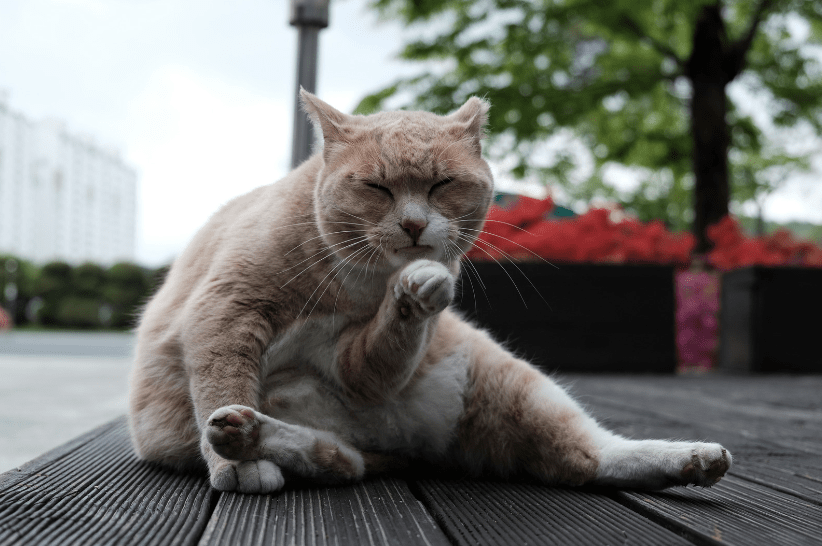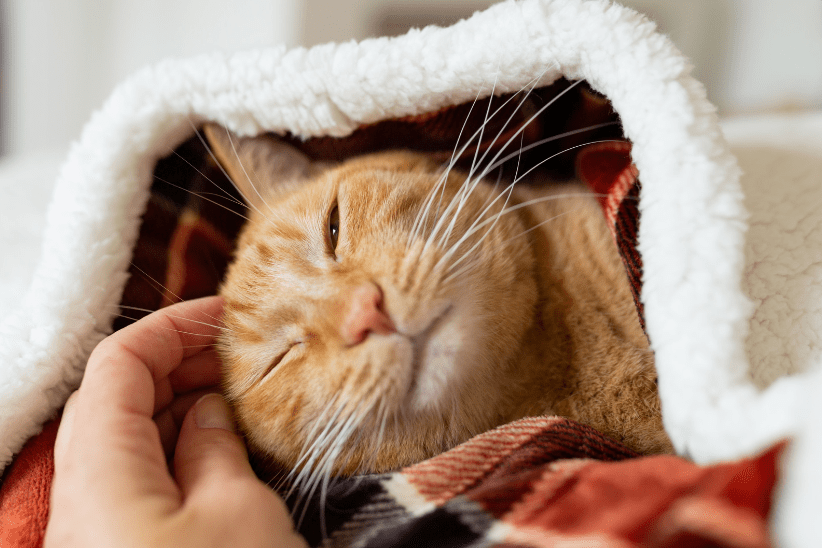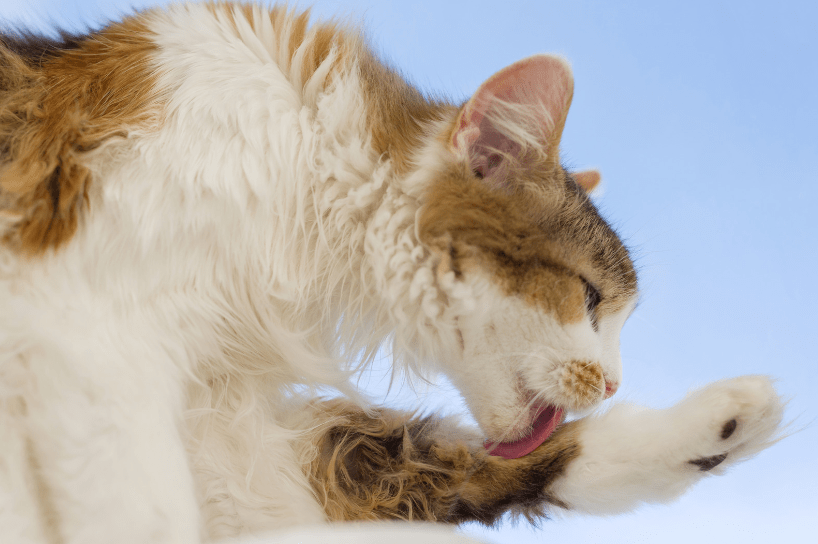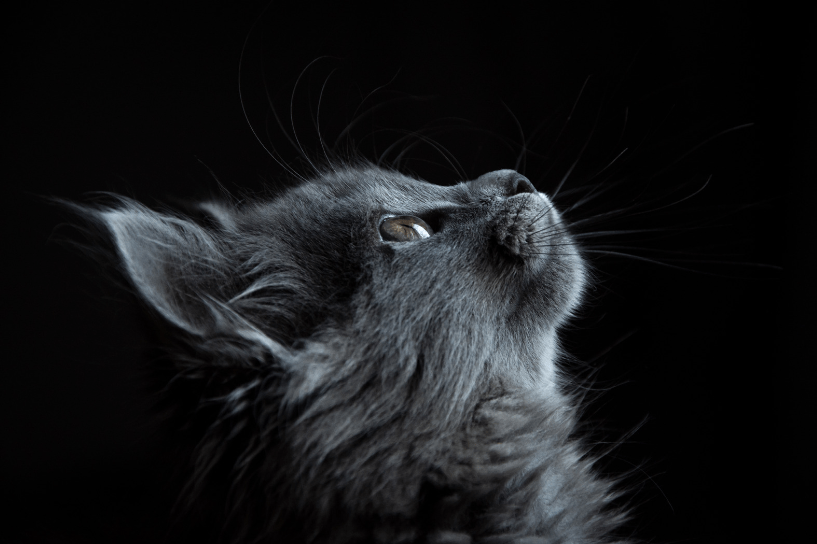Yes, cats can get parvo, a highly contagious viral disease that affects the intestines. Symptoms include lethargy, vomiting, diarrhea (which may be bloody), and an inability to eat or drink.
Unvaccinated cats can contract the virus from dogs under extreme circumstances. However, both dogs and cats have their types of parvovirus, so it’s not common for cats to get it from dogs. It’s crucial to have your cat vaccinated regularly to protect them from parvo.
Understanding Parvovirus In Cats
Cats can contract parvovirus under extreme circumstances, but it is uncommon. Symptoms include lethargy, vomiting, diarrhea, and an inability to eat and drink. Vaccination is crucial for prevention.
What Is The Cat Version Of Parvo?
The feline parvovirus, also known as feline panleukopenia virus, is the cat version of parvo. It can cause severe illness in cats and infects and kills rapidly growing cells in the body, including those in the bone marrow, intestines, and skin. It is closely related to the canine parvovirus and can even affect developing fetuses.
Can Cats Get Parvo?
Yes, feline parvovirus can affect cats. The virus is highly contagious and can spread through direct contact with an infected cat or an environment contaminated with the virus. Unvaccinated cats and kittens are especially at risk of contracting the virus. It’s important to differentiate the feline parvovirus from the canine distemper virus, despite the common confusion between the two.
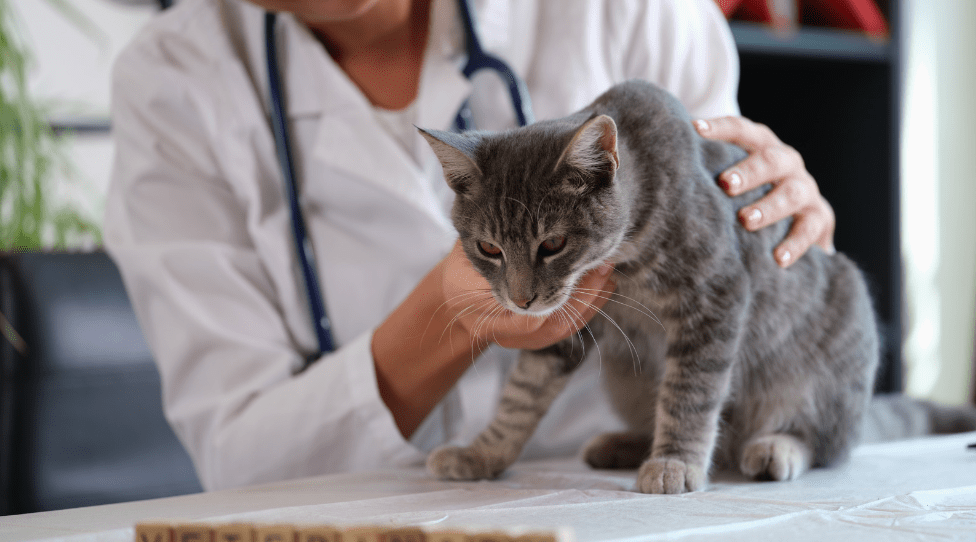
Can A Vaccinated Cat Get Parvo?
While vaccinations provide a strong defense against feline parvovirus, there is still a small chance that a vaccinated cat can contract the virus. Vaccines significantly reduce the severity of the illness and increase the chances of survival. However, it’s important to ensure that cats receive their regular vaccinations to provide them with the best protection against this potentially deadly virus.
Symptoms Of Parvovirus In Cats
Symptoms of Parvovirus in cats include lethargy, frothing at the mouth or vomiting, watery discharge from the nose, fever, diarrhea (sometimes bloody), and an inability to eat or drink. Although rare, unvaccinated cats can contract the virus from dogs under extreme circumstances.
Lethargy And Depression
Cats infected with the parvovirus often display symptoms of lethargy and depression. They may appear unusually tired, lacking energy, and uninterested in their usual activities. This can be a sign that something is wrong with your furry friend.
Vomiting And Diarrhea
Another common symptom of parvovirus in cats is vomiting and diarrhea. The cat may experience frequent episodes of vomiting or diarrhea that can be watery or bloody. These digestive issues can lead to dehydration and further complications.
Watery Discharge From The Nose
One noticeable symptom of parvovirus in cats is the presence of a watery discharge from the nose. This can indicate an upper respiratory infection caused by the virus. It’s important to monitor any changes in your cat’s nasal discharge and seek veterinary care if it persists.
Fever And Low Body Temperature
In the early stages of parvovirus infection, cats may experience fever. This can be followed by a significant drop in body temperature. It’s crucial to monitor your cat’s temperature and seek immediate veterinary attention if you notice any abnormalities.
Loss Of Appetite And Inability To Eat
Loss of appetite and a subsequent inability to eat are common symptoms of parvovirus in cats. The virus affects the digestive system, making it difficult for cats to consume food. If your cat is showing a lack of interest in food or experiencing difficulty eating, it’s important to consult a veterinarian.
Transmission Of Parvovirus In Cats
Parvovirus, also known as feline panleukopenia virus (FPV), is a highly contagious viral disease that primarily affects cats. Understanding how parvovirus is transmitted is crucial in preventing its spread and protecting our feline friends. In this section, we will explore the different ways in which parvovirus can be transmitted to cats.
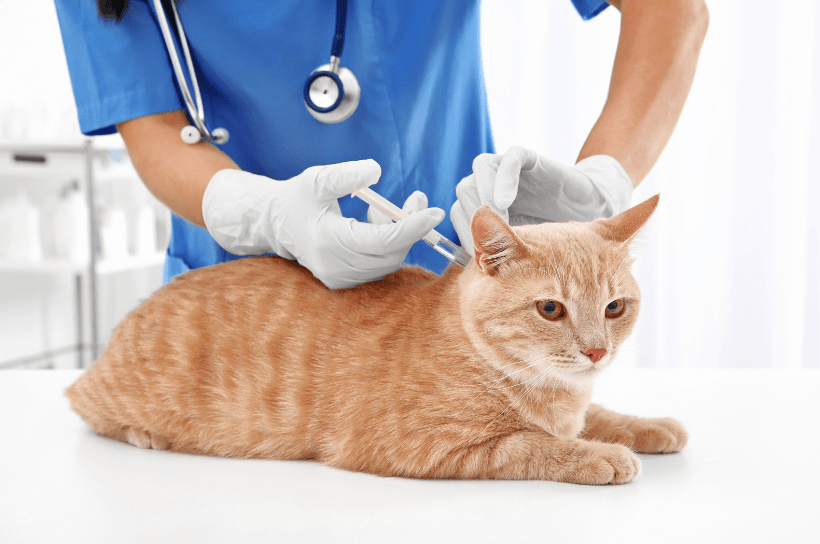
From Dogs To Cats
Dogs have known carriers of the parvovirus, but can cats get parvo from dogs? While unvaccinated cats can contract the virus from dogs, this transmission route is considered rare and only occurs under extreme circumstances.
From Humans To Cats
Fortunately, humans cannot directly transmit parvovirus to cats. However, cat owners need to practice good hygiene to prevent indirect transmission. This includes washing hands thoroughly after handling animals, especially if they are sick or have been in contact with an infected cat.
From Raccoons To Cats
Raccoons can carry the parvovirus and potentially transmit it to cats. This can occur if a cat comes into contact with raccoon feces or saliva that contains the virus. It is crucial to keep cats away from areas frequented by raccoons to minimize the risk of transmission.
Risks And Prevention Of Parvovirus In Cats
The parvovirus is a highly contagious and potentially deadly virus that primarily affects dogs. However, it can also infect cats, albeit very rarely. This article will discuss the risks of parvovirus in cats and the various prevention measures cat owners can take to protect their feline friends.
Protecting Your Feline Friends
The first step in preventing parvovirus in cats is to ensure that your feline friend receives regular vaccinations. Vaccinations are essential for building immunity against the virus and reducing the risk of infection. It’s important to consult with your veterinarian to determine the appropriate vaccination schedule for your cat.
Vaccinations For Cats
The primary vaccination for cats, known as the FVRCP vaccine, protects against multiple diseases, including feline panleukopenia, which is caused by the parvovirus. This vaccine is typically administered in a series of doses starting at around 8 to 9 weeks of age. Regular booster doses are necessary to maintain immunity throughout your cat’s life.
Importance Of Booster Doses
Booster doses are crucial to ensure that your cat’s immunity stays strong against the parvovirus. These booster doses are typically given annually or as recommended by your veterinarian. By staying up to date with booster shots, you can ensure that your feline friend remains protected against the virus.
Cleaning And Disinfection
In addition to giving vaccinations, you should maintain a clean and healthy environment for your cat. The parvovirus can survive in the environment for an extended period, so you must carry out thorough cleaning and disinfection, especially if you live in a multi-cat household. Use cleaning products specifically designed to kill the virus and pay special attention to the areas where your cat spends the most time.
In conclusion, while the risk of parvovirus in cats is low, you should still take vital preventive measures to protect your feline friend. You can accomplish this by administering vaccinations, regular booster doses, and ensuring proper cleaning and disinfection, which are key components of parvovirus prevention. By proactively safeguarding your cat’s health, you can provide them with a happy and healthy life.
Treatment And Management Of Parvovirus In Cats
Cat parvovirus, also known as feline panleukopenia virus, can infect cats and cause symptoms such as vomiting, diarrhea, lethargy, and fever. It is important to vaccinate cats against parvovirus and seek veterinary treatment to manage the disease effectively.
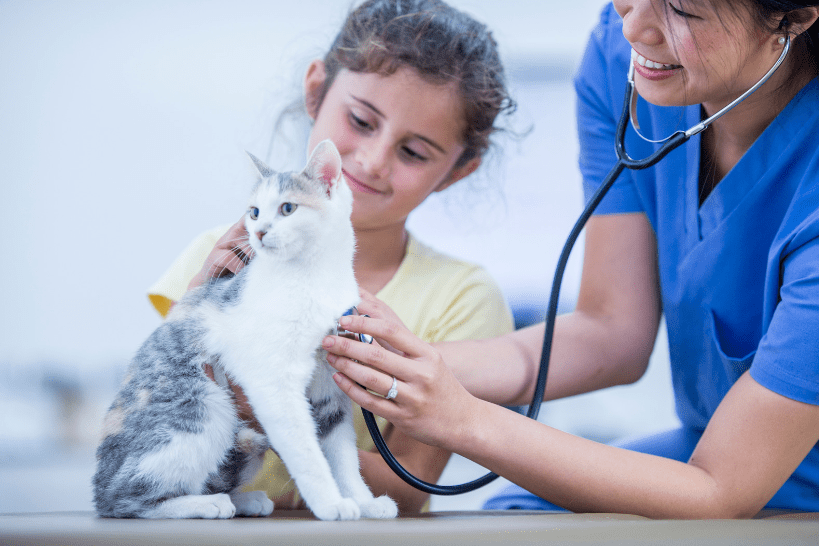
Supportive Treatments
When it comes to treating parvovirus in cats, supportive treatments play a crucial role in helping them recover. These treatments focus on alleviating the symptoms and providing comfort to the affected feline companion. Supportive treatments include:
- Fluid therapy to prevent dehydration and electrolyte imbalances.
- Anti-emetics to address vomiting and prevent further complications.
- Anti-diarrheal medications to manage diarrhea and promote gastrointestinal healing.
- Nutritional support through easily digestible and highly palatable food.
- Supplemental vitamins and minerals to boost the immune system.
- Administration of antibiotics to prevent secondary bacterial infections.
Addressing Vomiting And Diarrhea
Vomiting and diarrhea are common symptoms of parvovirus in cats. To manage these symptoms effectively, the following steps can be taken:
- Limit food intake for a few hours to allow the gastrointestinal tract to rest.
- Offer small, frequent meals of easily digestible food.
- Avoid feeding inappropriate or unfamiliar food.
- Provide access to fresh water to prevent dehydration.
- Anti-emetic medications can be administered as prescribed by a veterinarian.
- Anti-diarrheal medications may be recommended to help control diarrhea.
No Cure For Parvovirus
Unfortunately, no cure exists for parvovirus in cats. Once the virus infects a feline companion, it needs to run its course. However, providing proper treatment and supportive care significantly increases the chances of recovery. Consulting a veterinarian for a thorough diagnosis and initiating appropriate treatment protocols is essential.
Monitoring And Veterinary Care
For effective parvovirus management in cats, you must closely monitor them and provide regular veterinary care. Regular check-ups, blood tests, and fecal examinations can track the infection’s progress and guide the treatment plan. It’s important to adhere to the veterinarian’s vaccination recommendations to prevent future outbreaks in the feline population. Don’t forget, that timely intervention, supportive treatments, and diligent veterinary care can significantly enhance a cat’s chances of recovering from parvovirus.
Conclusion
Cats can contract parvo, but it is relatively rare and usually occurs under extreme circumstances. Symptoms of parvo in cats may include lethargy, vomiting, diarrhea, and dehydration. The virus is more susceptible to unvaccinated cats, so ensuring that your cat receives the necessary vaccinations is important.
Remember, viruses are generally species-specific, so the likelihood of cats getting parvo from dogs is low. If you suspect that your cat may have parvo, seeking veterinary care is crucial as no cure exists for the virus.
